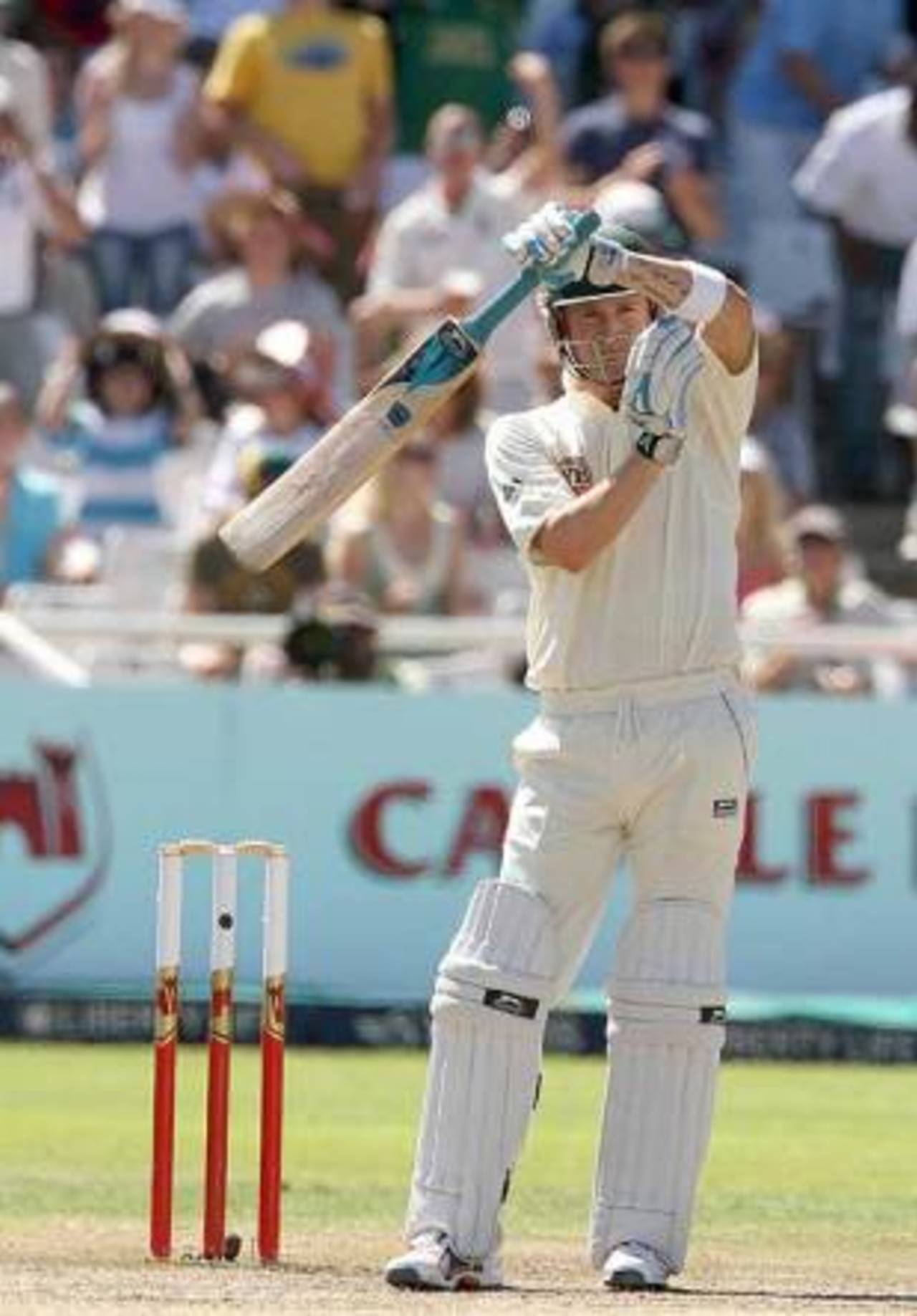Hawk-Eye in, Hot Spot out for Sri Lanka series
Sri Lanka's limited-overs and Test series against Australia will employ a version of the DRS that employs Hawk-eye technology but not Hot Spot
Daniel Brettig
10-Aug-2011

Players will be able to appeal against lbw decisions during the Tests and ODIs in Sri Lanka • AFP
Technology's place in reviewing the decisions of umpires became murkier still as it was confirmed Sri Lanka's limited-overs and Test series against Australia will employ a version of the DRS that utilises Hawk-Eye technology but not Hot Spot.
This arrangement, brought about by a combination of the two boards' acceptance of ball-tracking technology and the unavailability of Hot Spot cameras for the series in Sri Lanka, is almost completely the inverse of the configuration used by England and India in their concurrent Test series.
India's acceptance of Hot Spot but not ball-tracking or pitch-mapping has meant that lbw appeals cannot be referred during the series, while caught behinds and close catches are more thoroughly scrutinised.
The Sri Lankan board's position on the use of technology in the series has been fluid, pending costs and hardware availability, and the final implementation of the system means that lbw decisions will be the most keenly observed.
Final confirmation of the use of one technology but not the other arrived after the match referee Javagal Srinath's pre-series meeting with the two captains, Tillakaratne Dilshan and Michael Clarke. Srinath will preside over the limited-overs matches, in which each team is granted one unsuccessful decision review per innings, before Chris Broad takes over for the Tests, where two unsuccessful reviews per innings are permitted.
The DRS and its inconsistent use by various countries will continue during the Australian summer. New Zealand are scheduled to play two Tests against the hosts and will agree to the employment of all available technology for the series, before India's arrival will mean the removal of lbw reviews and ball-tracking.
Elsewhere the one-off Test between Zimbabwe and Bangladesh in Harare did not employ the DRS for reasons of cost, a problem that will persist so long as the technology is funded by broadcasters and host boards without recourse to a central fund or sponsorship.
Daniel Brettig is an assistant editor at ESPNcricinfo